Related Research Articles

Robert Jonathan Demme was an American filmmaker. Beginning his career under B-movie producer Roger Corman, Demme made his directorial debut with the 1974 women-in-prison film Caged Heat, before becoming known for his casually humanist films such as Melvin and Howard (1980), Swing Shift (1984), Something Wild (1986), and Married to the Mob (1988). His direction of the 1991 psychological horror film The Silence of the Lambs (1991) won him the Academy Award for Best Director. His subsequent films earned similar acclaim, notably Philadelphia (1993) and Rachel Getting Married (2008).

Peter Bogdanovich was an American director, writer, actor, producer, critic, and film historian.
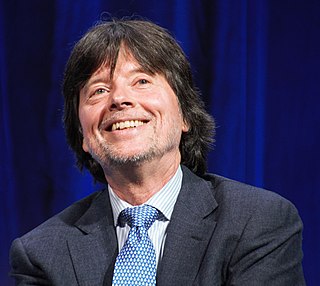
Kenneth Lauren Burns is an American filmmaker known for his documentary films and television series, many of which chronicle American history and culture. His work is often produced in association with WETA-TV and/or the National Endowment for the Humanities, and distributed by PBS.
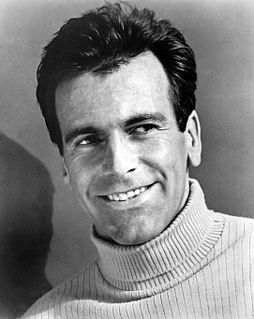
Maximilian Schell was an Austrian-born Swiss film and stage actor, who also wrote, directed and produced some of his own films. He won the Academy Award for Best Actor for the 1961 American film Judgment at Nuremberg, his second acting role in Hollywood. Born in Austria, his parents were involved in the arts and he grew up surrounded by acting and literature. While he was a child, his family fled to Switzerland in 1938 when Austria was annexed by Nazi Germany, and they settled in Zurich. After World War II ended, Schell took up acting and directing full-time. He appeared in numerous German films, often anti-war, before moving on to Hollywood.
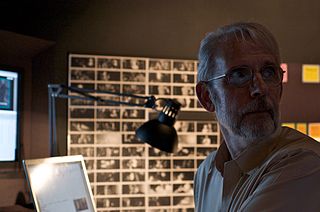
Walter Scott Murch is an American film editor, director, writer and sound designer. With a career stretching back to 1969, including work on THX 1138, Apocalypse Now, The Godfather I, II, and III, American Graffiti, The Conversation, and The English Patient, with three Academy Award wins, he has been referred to by Roger Ebert as "the most respected film editor and sound designer in the modern cinema." David Thomson, in his New Biographical Dictionary of Film, calls Murch "the scholar, gentleman and superb craftsman of modern film", adding that "in sound and editing, he is now without peer."
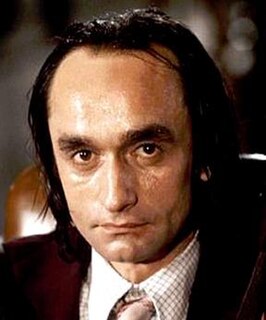
John Holland Cazale was an American actor. He appeared in five films over seven years, all of which were nominated for the Academy Award for Best Picture: The Godfather (1972), The Conversation (1974), The Godfather Part II (1974), Dog Day Afternoon (1975), and The Deer Hunter (1978), with the two Godfather films and The Deer Hunter winning. Cazale started as a theater actor in New York City, ranging from regional, to off-Broadway, to Broadway acting alongside Al Pacino, Meryl Streep, and Sam Waterston. Cazale soon became one of Hollywood's premier character actors, starting with his role as the doomed, weak-minded Fredo Corleone opposite longtime friend Al Pacino in Francis Ford Coppola's film The Godfather and its 1974 sequel, as well as Sidney Lumet's Dog Day Afternoon. In 1977, Cazale was diagnosed with lung cancer, but he chose to continue completing his role in The Deer Hunter. He died shortly after, in New York City on March 13, 1978.

Sooni Taraporevala is an Indian screenwriter, photographer and filmmaker who is the screenwriter of Mississippi Masala, The Namesake and Oscar-nominated Salaam Bombay! (1988), all directed by Mira Nair. She also adapted Rohinton Mistry's novel Such A Long Journey(2000) wrote the films Dr. Babasaheb Ambedkar her directorial debut Little Zizou as well as her latest film Yeh Ballet (2020) A Netflix Original that she wrote and directed.

The Telluride Film Festival is a film festival held annually in Telluride, Colorado during Labor Day weekend. The 48th Telluride Film Festival took place from September 2 to 6, 2021.
George Cashel Stoney was an American documentary filmmaker, educator, and the "father of public-access television." Among his films were Palmour Street, A Study of Family Life (1949), All My Babies (1953), How the Myth Was Made (1979) and The Uprising of '34 (1995). All My Babies was entered into the National Film Registry in 2002. Stoney's life and work were the subject of a Festschrift volume of the journal Wide Angle in 1999.
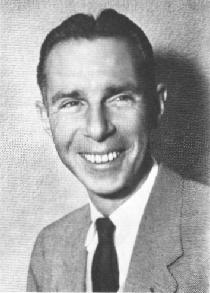
Jack Arnold was an American actor and film and television director, best known as one of the leading filmmakers of 1950s science fiction films. His most notable films are It Came from Outer Space (1953), Creature from the Black Lagoon (1954), Tarantula (1955), and The Incredible Shrinking Man (1957).

Philippe Petit is a French high-wire artist who gained fame for his unauthorized high-wire walks between the towers of Notre Dame Cathedral in Paris in 1971 and of Sydney Harbour Bridge in 1973, as well as between the Twin Towers of the World Trade Center in New York City on the morning of 7 August 1974. For his unauthorized feat 400 metres above the ground – which he referred to as "le coup" – he rigged a 200-kilogram (440-pound) cable and used a custom-made 8-metre (30-foot) long, 25-kilogram (55-pound) balancing pole. He performed for 45 minutes, making eight passes along the wire.

Barbara Jean Hammer was an American feminist film director, producer, writer, and cinematographer. She is known for being one of the pioneers of the lesbian film genre, and her career spanned over 50 years. Hammer is known for having created experimental films dealing with women's issues such as gender roles, lesbian relationships, coping with aging, and family life. She resided in New York City and Kerhonkson, New York, and taught each summer at the European Graduate School.
Richard Amsel was an American illustrator and graphic designer. His career was brief but prolific, including movie posters, album covers, and magazine covers. His portrait of comedian Lily Tomlin for the cover of Time is now part of the permanent collection at the Smithsonian Institution. He was associated with TV Guide for thirteen years.

Willard Van Dyke was an American filmmaker, photographer, arts administrator, teacher, and former director of the film department at the Museum of Modern Art. Van Dyke went to the University of California, dropping out for a time to avoid taking an ROTC course.

The Inner Eye is a 1972 short documentary film made by Satyajit Ray on Benode Behari Mukherjee, a blind artist and a teacher from Visva-Bharati University, a university founded by Rabindranath Tagore at Santiniketan. The twenty minutes documentary features the life and works of Mukherjee in the form of paintings and photographs, starring himself. The documentary covers his journey from childhood till his blindness along with much of his works and features his words, "Blindness is a new feeling, a new experience, a new state of being". The documentary was awarded as Best Information Film (Documentary) at 20th National Film Awards in 1972.

Yannis Smaragdis is a Greek film director.
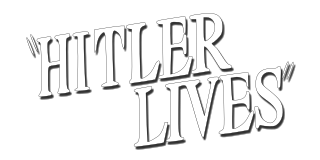
Hitler Lives is a 1945 American short documentary film directed by Don Siegel, who was uncredited. The film won an Oscar at the 18th Academy Awards in 1946 for Documentary Short Subject. Earlier the same year, Siegel made his directorial debut on another short film Star in the Night (1945), which also won an Academy Award. The film's copyright was renewed.

Grant Munro, was a Canadian animator, filmmaker and actor. In 1952, he starred with Jean-Paul Ladouceur in Norman McLaren's Neighbours. He worked on the films Two Bagatelles (1953), Seven Surprizes (1963), Christmas Cracker (1963) and Canon (1964). His film, Christmas Cracker, was nominated for an Academy Award in 1962.

Dzi Croquettes is a 2009 Brazilian documentary film directed by Tatiana Issa and Raphael Alvarez about the dance and theater group of the same name.

Samuel D. Pollard is an American film director, editor, producer, and screenwriter. His films have garnered numerous awards such as Peabodys, Emmys, and an Academy Award nomination. In 2020, the International Documentary Association gave him a career achievement award. Spike Lee, whose films Pollard has edited and produced, described him as being "a master filmmaker." Henry Louis Gates Jr. characterizes his work in this way: “When I think about his documentaries, they add up to a corpus — a way of telling African-American history in its various dimensions.”
References
- ↑ "NY Times: The Challenge... A Tribute to Modern Art". Movies & TV Dept. The New York Times . Baseline & All Movie Guide. 2009. Archived from the original on October 4, 2009. Retrieved November 15, 2008.
- ↑ "The 47th Academy Awards (1975) Nominees and Winners". oscars.org. Retrieved June 10, 2019.